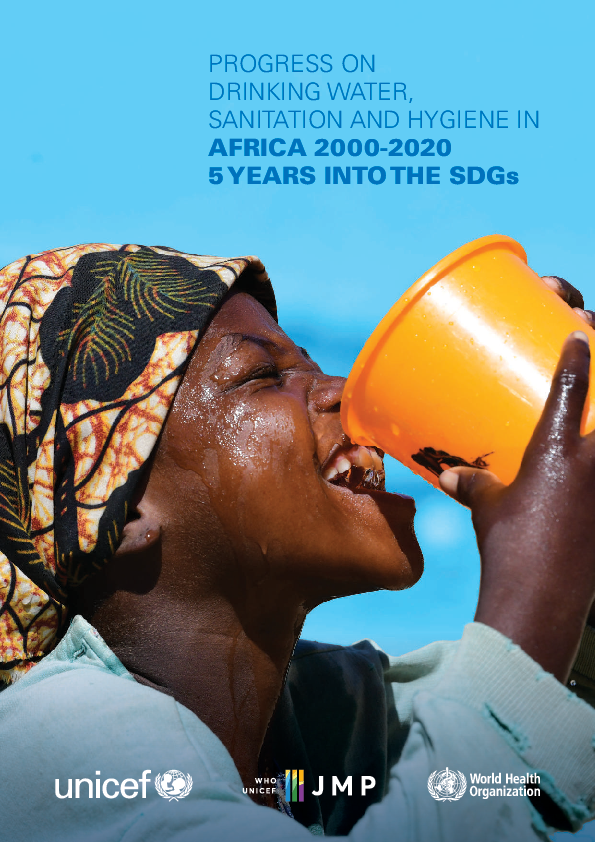- Share this article
- Subscribe to our newsletter
Progress in drinking water, sanitation and hygiene in Africa
The report Progress in drinking water, sanitation and hygiene in Africa 2000-2020: 5 Years into the SDGs, launched by the WHO/UNICEF Joint Monitoring Programme for Water Supply, Sanitation and Hygiene (JMP) at the World Water Forum in March 2022, calls for urgent action to be taken on a continent where water scarcity and weak sanitation and hygiene services can threaten peace and development. Achieving the Sustainable Development Goals (SDG) targets on water, sanitation and hygiene in Africa will require a dramatic acceleration in the current rates of progress, the authors state.
Between 2000 and 2020, Africa’s population increased from 800 million to 1.3 billion people. About 500 million people gained access to basic drinking water and 290 million to basic sanitation services. However, on the continent 418 million people still lack even a basic level of drinking water services, 779 million lack basic sanitation services (including 208 million who still practice open defecation) and 839 million still lack basic hygiene services. Achieving the SDG targets in Africa will require a 12-fold increase in current rates of progress on safely managed drinking water, a 20-fold increase for safely managed sanitation and a 42-fold increase for basic hygiene services, according to the report.
Significant inequalities persist within countries including between urban and rural areas, between sub-national regions and between the richest and the poorest. In urban areas, 2 out of 5 people lack safely managed drinking water, 2 out of 3 people lack safely managed sanitation, and half the population lacks basic hygiene services. In rural areas, 4 out of 5 people lack safely managed drinking water, 3 out of 4 people lack safely managed sanitation, and 7 out of 10 lack basic hygiene services.
(UNICEF/ile)
Download the report





Add a comment
Comments :